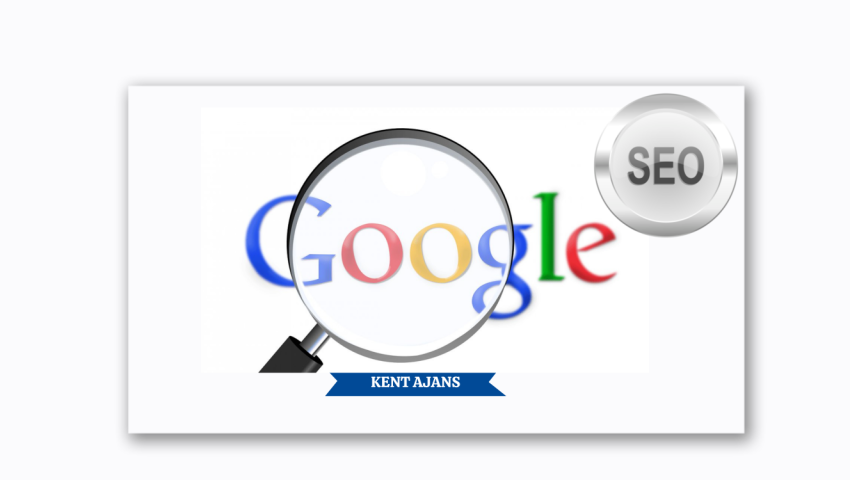
What Has Google Been Paying Special Attention To Lately For SEO?
What Has Google Been Paying Special Attention To Lately For SEO?
There was something called keyword density, and it worked.
Sprinkle keywords all over your text, put them in your meta description, put them in your URL, put them in your title, and Google would say, “Okay, this is what you want to write about,” and move you up. But then Google’s technology evolved. They had something called RankBrain. So what is RankBrain? It’s Google’s ranking algorithm powered by artificial intelligence. It tries to understand the user’s intent, not the spelling of the keyword. In other words, when a user types in “best coffee maker,” Google now highlights not only the pages that contain those words, but also the content that would best answer that search.
* Typing the keyword 50 times
* Full but empty 500-word articles
* Inappropriate content for the title
* Buying low-quality backlinks
This kind of thing doesn’t work for SEO anymore, and you won’t stand out for your target keywords. Content that you stuff with keywords won’t stand out because Google understands your intentions and how low-quality it is. They don’t want content that is clickbait-oriented, in other words, Google really and truly cares whether the person reading that content is familiar with the title.
So what's the use?
* Backlinks from authoritative sites or backlinks provided to you by sites related to your industry
* Really satisfying content that explains the topic
* User-friendly experience (UX)
* Mobile-friendliness
* Page speed
* Basic web metrics (I’ll explain this in a moment)
* E-E-A-T: Experience, Expertise, Authority, and Trust
Google says, “If you’re writing about a topic, you need to have knowledge and experience on it. This isn’t just a random article!” E-E-A-T is actually the first letter of these four words:
* Experience
* Expertise
* Authority
* Credibility
For example, if you’re creating content about “losing weight on the keto diet,” you should either have followed that diet (experience), or be an expert on that topic (like a nutritionist), or be someone well-known in the industry (authority), or be a trusted source (like a health platform). If you are neither of these, then in Google’s eyes you are not competent in that area and your content is not important or useful enough to rank. In the past, you installed a WordPress theme, added Yoast, wrote the title, and SEO optimization was done in most respects. But that’s not the case anymore. Now Google looks at how fast the page loads, how long users stay on the page, and even whether everything looks good on that size screen.
Google is developing 3 main metrics to measure user experience:
* lcp (largest content load time): How long does it take for the main content of the page to load. In other words, when a user enters the page, how many seconds does it take for the first major area (headline, image, or main text block) to appear on the screen? Google’s limit: It should be under 2.5 seconds. In other words, if a user leaves the page “before the text even appears,” both the ranking and the user will be lost.
* fid (first input lag): The time it takes for a user to first interact with the page. In other words, the page has loaded, the user has clicked on a menu or button, but the site has frozen for 1-2 seconds. This is a bad experience for both the user and Google. Google wants a responsive response time of less than 100 milliseconds. In other words, when you click on the button, it should open with a click. Otherwise, the user will get angry and Google will label your page as “slow” and not rank it higher.
* cls (cumulative layout shift): Whether elements slide or shift as the page loads. I mean, you know, when you go to a site and while you’re about to read an article, suddenly an ad loads from below, everything scrolls and you accidentally click on the ad, Google really doesn’t like that. The CLS metric measures exactly these “shifts.” The ideal CLS score should be below 0.1. In other words, the page should be stable, non-sliding, motionless.
These metrics already influence the ranking factor
Google officially announced this in 2021. If you score poorly on these three metrics, your competitor can outrank you, even if they offer content of the same quality as you. If you fail on these metrics, you lose ranking, no matter how good your content is. Because in Google’s eyes, bad experience = bad site that is not worth ranking. Google now evaluates your site not only on desktop but also on mobile. This means that a site will be good on mobile first. This approach is called mobile-first indexing. In other words, if the page speed is bad on mobile, if the text overflows, if the buttons are not clickable, no matter how much content you enter, it is useless. Google takes your mobile state as a basis and ranks accordingly. In a country like Turkey, where the rate of internet access from a mobile device is close to 80 percent, this is now a must. In other words, Google has been saying for years that “content is king,” but then it realized this: if content is king, user experience is the throne. In other words, no matter how good the content is, if the page is slow, the buttons are unstable, the user can't click on what they want, the case is closed.
So, beyond all of that, what about creating content for SEO?
In other words, is it possible to get anywhere in SEO just by creating content? Unfortunately, it is not. Content alone is no longer enough. Okay, producing quality content is still the foundation of SEO, but if you don’t appeal to the user, if you only write the text the way you want it to appear in the search engine, your job is difficult. There are many things to pay attention to when creating content:
* Aim for the user’s intent, not the keyword
* Stay away from duplicate content
* Write the text simply but comprehensive
* Your texts should include visual elements and videos
* Remember that once you publish the content, you need to update it
In other words, you will understand the user, write content accordingly, make your site fly on mobile devices, pay attention to technical optimization, be reliable, be competent. In short, SEO is already a whole. If the pieces are missing, Google will not like you. The user won't like you anyway. SEO is basically the art of persuading people. If you don't grab the attention of not only Google but also the person in front of the screen, it means nothing. It's not like it used to be, it doesn't work by fooling bots or embedding keywords in the text. If your intention is truly to take advantage, Google understands it. If it doesn't, Google is forced to move you up as long as you produce good content.

